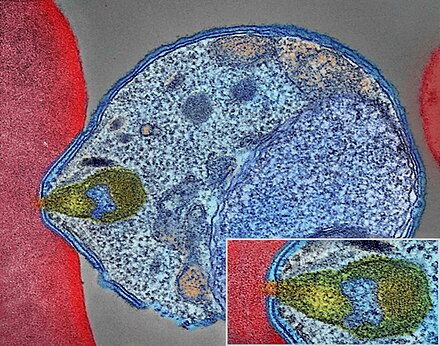

Why you should avoid taking Vitamin C while treating malaria
Taiwo Emmanuel@emmanueltaiwo863879
7 months ago
Why You Should Avoid Taking Vitamin C While Treating Malaria
The treatment of malaria, a life-threatening disease caused by Plasmodium parasites, requires adherence to specific protocols to ensure full recovery. Among these protocols, there is one widely shared piece of advice: avoid taking vitamin C during malaria treatment. While vitamin C is celebrated for its immune-boosting properties and numerous health benefits, its interaction with antimalarial drugs can hinder the treatment process, potentially worsening the disease's impact.
In this article, we will explore the reasons behind this recommendation, shedding light on how vitamin C affects malaria treatment, the science behind its interaction with antimalarial drugs, and the broader implications for recovery. By understanding these factors, patients and caregivers can make informed decisions during treatment and achieve better outcomes.
Understanding Malaria and Its Treatment
Malaria is caused by Plasmodium parasites, which are transmitted to humans through the bites of infected female Anopheles mosquitoes. Once inside the body, these parasites invade the liver, multiply, and later infect red blood cells, causing a range of symptoms, including fever, chills, body aches, and fatigue.
Effective treatment of malaria depends on prompt diagnosis and the use of antimalarial drugs. These drugs, such as artemisinin-based combination therapies (ACTs) and chloroquine, work by targeting and eliminating the parasites in the bloodstream.
However, certain dietary and lifestyle choices during treatment can interfere with the efficacy of these medications, and one of the most significant culprits is vitamin C.
What Is Vitamin C and Why Is It Important?
Vitamin C, or ascorbic acid, is a water-soluble vitamin essential for various bodily functions:
Immune Support: It enhances the production of white blood cells and strengthens the body’s defenses against infections.
Antioxidant Properties: Vitamin C neutralizes free radicals, protecting cells from oxidative damage.
Collagen Synthesis: It is crucial for the formation of collagen, which supports skin, blood vessels, and connective tissues.
Iron Absorption: Vitamin C helps the body absorb non-heme iron from plant-based foods.
Given these benefits, vitamin C is often regarded as a go-to supplement during illnesses. However, in the context of malaria treatment, its effects can be counterproductive.
The Interaction Between Vitamin C and Antimalarial Drugs
The primary reason for avoiding vitamin C during malaria treatment lies in its potential to interfere with the efficacy of antimalarial drugs. Here’s how:
1. Reduction of Drug Potency
Antimalarial drugs, particularly artemisinin-based therapies, rely on oxidative stress to kill malaria parasites. These drugs generate free radicals—unstable molecules that damage the parasites’ cellular structures, leading to their death.
Vitamin C, as a potent antioxidant, works by neutralizing free radicals to protect the body’s cells. While this is beneficial in other contexts, it can reduce the effectiveness of antimalarial drugs by counteracting the oxidative stress they create. In essence, vitamin C can "rescue" the parasites by neutralizing the very mechanism intended to eliminate them.
2. Delayed Parasite Clearance
Research suggests that the concurrent use of antioxidants like vitamin C during malaria treatment may delay the clearance of parasites from the bloodstream. This prolongs the duration of the illness and increases the risk of complications.
3. Impact on Drug Absorption
Some antimalarial drugs, such as chloroquine, depend on the acidic environment of the stomach for optimal absorption. Vitamin C, when taken in large amounts, can alter stomach pH, potentially affecting the absorption and bioavailability of these medications.
4. Increased Risk of Drug Resistance
By diminishing the efficacy of antimalarial drugs, vitamin C may contribute to the development of drug-resistant strains of malaria parasites. Resistance to antimalarial drugs is a growing concern worldwide, and any factor that accelerates this trend poses a significant public health risk.
Scientific Evidence Supporting These Claims
Several studies have explored the interaction between vitamin C and antimalarial treatment, providing valuable insights:
Antioxidants and Antimalarial Drugs: A study published in The American Journal of Tropical Medicine and Hygiene highlighted that antioxidants like vitamin C can reduce the oxidative damage caused by antimalarial drugs, thereby decreasing their efficacy.
Delayed Parasite Clearance: Research conducted on animal models demonstrated that concurrent administration of vitamin C with antimalarial drugs prolonged the clearance of parasites from the bloodstream compared to using the drugs alone.
Impact on Artemisinin Derivatives: A study in the Journal of Pharmacology revealed that high doses of vitamin C interfered with the activity of artemisinin derivatives, emphasizing the need to avoid these supplements during treatment.
Common Misconceptions About Vitamin C and Malaria
Despite the evidence, many people continue to take vitamin C during malaria treatment due to misconceptions. Let’s address some of these myths:
Myth 1: Vitamin C Boosts Immunity, So It Must Help Fight Malaria.
While vitamin C does enhance immune function, malaria treatment primarily relies on medications to eliminate the parasites. Vitamin C cannot replace or enhance the action of these drugs and may, in fact, interfere with their effectiveness.
Myth 2: Natural Sources of Vitamin C Are Harmless.
Even natural sources of vitamin C, such as oranges, guavas, and lemons, can pose a risk during malaria treatment if consumed in large quantities. Moderation is key.
Myth 3: Vitamin C Helps Reduce Fever in Malaria.
Fever in malaria is caused by the body’s response to the parasites, not by a lack of vitamin C. Addressing the root cause—parasite elimination—is the most effective way to reduce fever.
Dietary Considerations During Malaria Treatment
Proper nutrition plays a vital role in supporting the body during malaria treatment. While it is important to avoid excessive vitamin C intake, there are other dietary recommendations to follow:
1. Foods to Avoid
Citrus Fruits: Oranges, lemons, and grapefruits are rich in vitamin C and should be consumed sparingly.
Alcohol and Caffeine: These can dehydrate the body and interfere with medication efficacy.
Fatty and Greasy Foods: These may worsen nausea and disrupt digestion.
2. Foods to Include
Carbohydrates: Foods like rice, yams, and potatoes provide energy to combat fatigue.
Proteins: Lean meats, fish, and eggs support tissue repair and immune function.
Hydrating Fluids: Water, herbal teas, and oral rehydration solutions help prevent dehydration caused by fever and sweating.
Iron-Rich Foods: Malaria often causes anemia, so including iron-rich foods like spinach and beans is beneficial.
Managing Malaria Symptoms Without Vitamin C
If you’re looking for ways to support your recovery without relying on vitamin C, consider the following:
1. Hydration
Drinking plenty of fluids helps flush out toxins and supports overall recovery.
2. Balanced Diet
Focus on a nutrient-rich diet that provides essential vitamins and minerals without overloading on vitamin C.
3. Rest
Adequate rest allows the body to focus its energy on fighting the infection.
4. Follow Medical Advice
Always take antimalarial drugs as prescribed and avoid self-medicating with supplements or alternative remedies.
The Broader Implications of This Advice
The recommendation to avoid vitamin C during malaria treatment highlights the importance of understanding drug-nutrient interactions. While vitamin C is generally safe and beneficial, its context-specific effects can have unintended consequences.
Healthcare providers and public health campaigns should emphasize the importance of adhering to treatment guidelines, including dietary precautions, to improve patient outcomes.
Conclusion
The advice to avoid vitamin C during malaria treatment is rooted in science and aims to ensure the efficacy of antimalarial drugs. By neutralizing the oxidative stress essential for killing malaria parasites, vitamin C can inadvertently hinder the treatment process, prolong recovery, and increase the risk of complications.
Patients and caregivers must be mindful of this interaction and focus on supporting the body’s recovery through proper nutrition, hydration, and rest. With a clear understanding of these precautions, we can enhance the effectiveness of malaria treatment and reduce the burden of this deadly disease.
As we continue to fight malaria, let us prioritize evidence-based practices and educate communities about the dos and don’ts of treatment. Together, we can ensure that every patient receives the care they need for a swift and complete recovery.
#HelloNircle #Nircle #NircleCommunity #NircleForums #Malaria #VitaminC #Notes #Forums #Medicine

